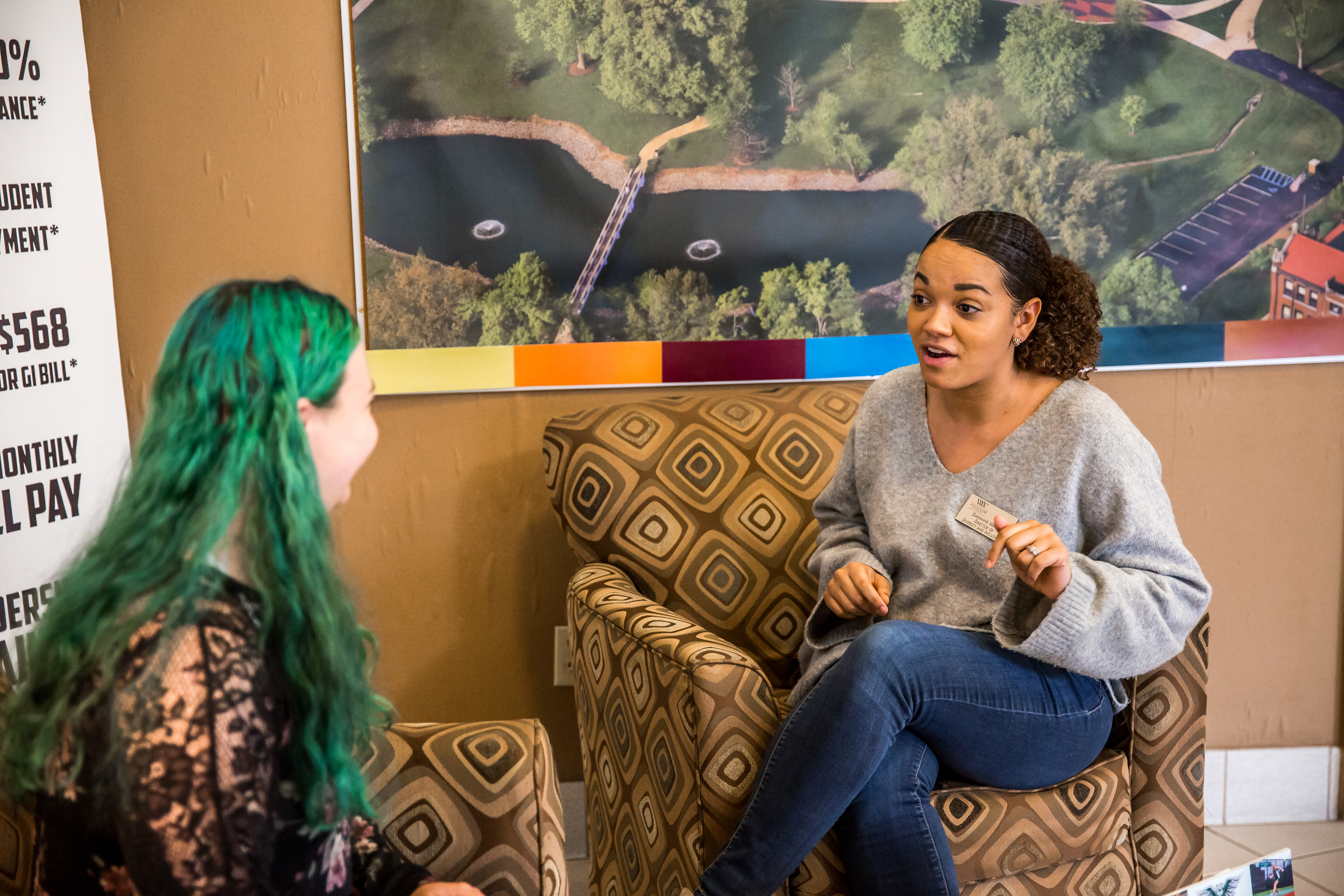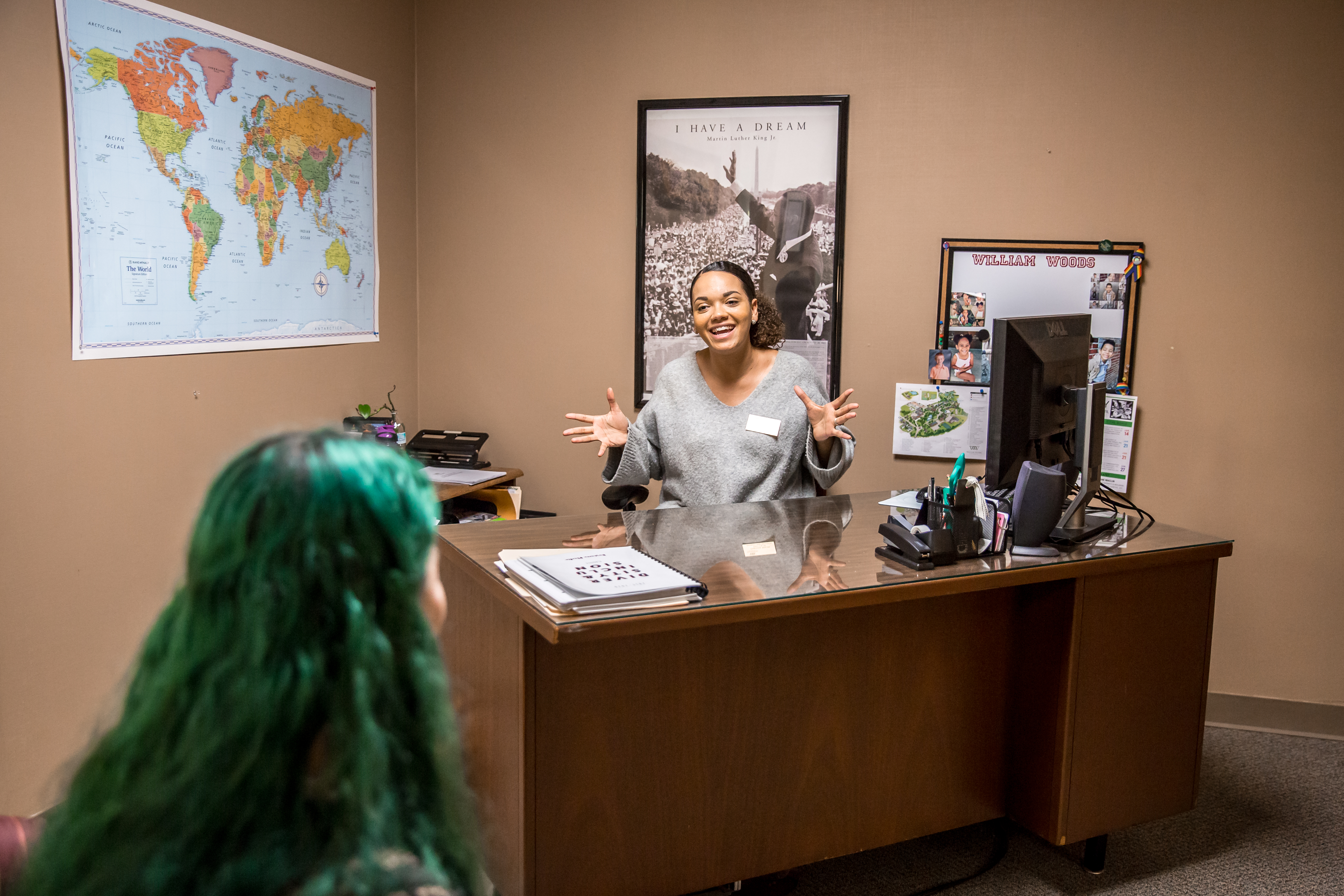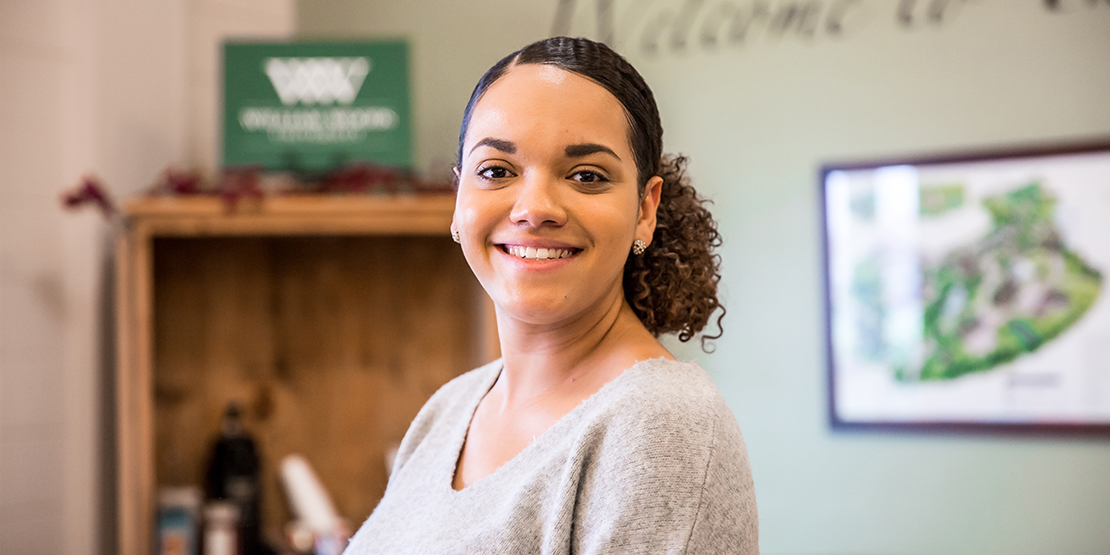Why is diversity important, whether it’s in higher education, the workplace or anywhere else?
There are a lot of ways to answer that, but I think the most important aspect of diversity, especially in higher education, is that it allows us to see different perspectives. So we’re not just boxed into the one area that we come from or live in or are familiar with. I think we often hear people say they experience a lot of personal change and growth when they’re exposed to people who are different then themselves. So especially in higher education, it’s extremely important that we provide opportunities for people to learn about places they may never see, places that could completely, potentially shift the course of their life. That can mean cultures, people, different problems that they’re solving or skills that they didn’t know they had, had they not been exposed to all these differences. Not just in higher education, but in any area, if we’re able to compare our experiences with the experiences of others, there’s a lot of growth and learning that we can do.

How do you promote inclusion?
It starts with an openness and a growth mindset. We have to be willing to see outside of ourselves and see different challenges that people face. Sometimes we like to experience other people’s cultures for the entertainment value or the fun that can be had, but I think it’s extremely important that the inclusivity really does start with being open to seeing someone’s whole and entire experience, not just the parts that are appealing to us, not just the parts we can get entertainment from. To see people’s experiences for what they are – all the way from their achievements and victories to their struggles and the different challenges they face. I think if we start with that openness to learn and that growth mindset, that’s where the inclusivity starts. And then when we have people who are willing to learn, we then have to give them opportunities to learn. So more than just being open to learn, we have to make it a priority, one that is in the forefront of our minds. How do we make space at this table for people who may not be at this table? By letting them give their input, their feedback and talk about their experiences.
What kind of LEAD events do you plan on hosting this semester?
We have one coming up about that I’m super excited about. “Prom Night in Mississippi” is a documentary about modern-day segregation. In certain areas of the south, there are segregated proms still taking place for high school students. So whites-only proms, and blacks- only proms, we’re talking about as recently as 2008 and 2009. So those are some pretty shocking statements when we find out that things like that still exist. I really want to take some documentaries and put them out there for students, faculty and staff. I want to put them out there so we know some of the issues we think are in the past are sitting here staring us in the face, we may just not know about them. I also have some Martin Luther King Jr. Day events coming that are going to be engaging in terms of letting students be involved in art, so that we are making sure we have the opportunity to learn not only from a lecture perspective, but also for the learners who like to get in there with their hands or can’t just read to understand.

How are you available to help students?
The office itself provides a lot of resources to help students who may be having a hard time feeling engaged or having a hard time adjusting to their environment; I think college is already a time where there’s so much change and transition going on from the time you move to the university. There’s not just educational struggles, there’s also social and cultural aspects that come into play. And so if you’re having a hard time feeling connected, the Office of Diversity and Inclusion is a great place to go. Especially for those who are really passionate about learning more about themselves. There are definitely resources for that as well. Some other resources are the local library. I can get you set up to have an account there where you might be able to look up ancestry or genealogy, learn more about where you’ve come from. Then take that knowledge and put together an event on what you’ve learned. So that’s another great place to go if you want to learn and you’re looking for resources. If you’re not feeling heard or understood on campus, maybe there are obstacles getting in the way of what you came here to achieve, then the Office of Diversity and Inclusion is a great place to start. Aside from cultural planning and events on campus, I want students to know I’m here for them in any way they may need, especially those that are having a hard time connecting.
How does William Woods make all students feel welcome and included on campus?
I think it starts with the programming. There’s a lot of different departments. I’ve noticed since coming here that a lot of our educational departments show some interest in diving into some cultural programming. While it may not be entirely campus-wide, where every single event we have is based around cultural education or cultural competency, I have been really lucky to work with other departments, like our legal studies department and our theatre department to get some cultural programming going. This makes it so students are able to blend their education with the very important cultural experiences they can gain here as well. I know that for some students, who may not be from this region of the country, this could be a culture shock. If they don’t know what to do with that culture shock, from one perspective we can say there’s a lot of opportunity for them to grow and learn, but there’s also a possibility for them to feel alienated. And so we need to start there. But with the cultural programming on campus there’s a great opportunity for students to be able to engage and learn something.

